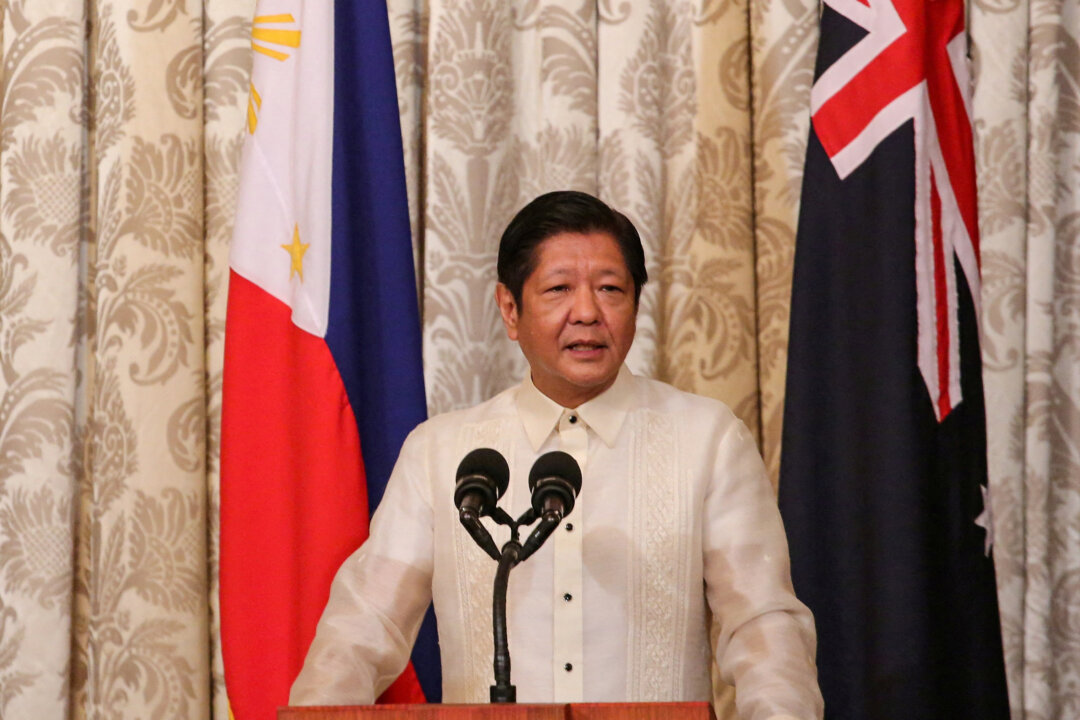Philippine President Ferdinand Marcos Jr. told reporters he had a “very friendly” and “very productive” call with U.S. President-elect Donald Trump on Nov. 19, wherein both leaders expressed their intent to strengthen the alliance between the two countries.
“I think President-elect Trump was happy to hear from the Philippines,” said Marcos, who has worked to rebuild the Philippines’ relationship with the United States and has seen stronger ties under the Biden administration.
Marcos is the son of former Filipino President Ferdinand Marcos Sr., whose time in office was marked by rebellions by various groups including a newly founded Communist Party of the Philippines that spurred him to declare martial law. In 1986, the family fled to Hawaii with the help of the United States after mass protests ousted Marcos Sr. from his two-decade rule.
Marcos said Trump had asked about his 95-year-old mother.
“He asked, ‘How is Imelda?’ I told him, ‘She’s congratulating you,’” he said.
Marcos took office in 2022, steering the Philippines toward the United States in a departure from his pro-Beijing predecessor, Rodrigo Duterte.
Last year, Marcos made the first official visit by a Filipino leader to the United States in more than a decade.
The United States and the Philippines are allied under a 1951 Mutual Defense Treaty, but the relationship frayed under Duterte, who threatened to revoke an agreement that allowed U.S. troops to have a presence in the Philippines but reversed his decision before the end of his term.
The Visiting Forces Agreement provides rules for the rotation of thousands of U.S. troops in and out of the Philippines for war drills and exercises.
The Philippines, which sits in a strategically critical location in the South China Sea below Taiwan, has faced increasing military aggression from the Chinese communist regime in recent months.
The United States has reiterated its commitment to defend the Philippines if the Chinese military crosses the line, and on Nov. 19, U.S. Defense Secretary Lloyd Austin visited the Philippine military’s Western Command on the island of Palawan in person to do so.
“Americans are profoundly committed to the defense of the Philippines,” Austin said in a joint press conference with his Manila counterpart, Gilberto Teodoro. On Nov. 18, the two defense officials signed a cooperation agreement to increase intelligence sharing and pave the way for Manila to receive more sophisticated U.S. weapons systems.
Austin said the behavior of the Chinese communist regime in relation to the Philippines has been concerning.
In recent months, Chinese coast guard ships and other vessels have clashed with Philippine vessels, including ramming into ships and firing water cannons, drawing international condemnation. Chinese vessels have also maneuvered to prevent Philippine resupply missions and deny Philippine vessels access to Philippine territory.
“Our commitment to the Mutual Defense Treaty is ironclad. Let me say again that the Mutual Defense Treaty applies to armed attacks on either of our own armed forces, aircraft, or public vessels, including our coastguards, anywhere in the South China Sea,” Austin said.
Reuters contributed to this report.

